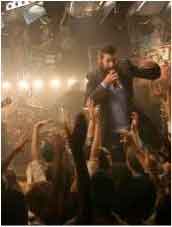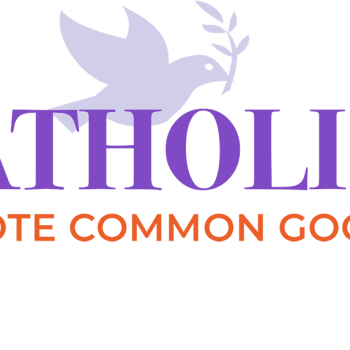Yeah, it all kind of figures together. There's a Kabbalistic idea of the first world being shattered, utterly destroyed, and the second world - the world we're in right now - being a tikkun, a fixing, of the first one. Are you an artist?
Do you mean --
I mean, like, a visual artist.
I draw a little, but I don't really know what I'm doing.
I know what you mean. That's where I am, too. (Laughs.) So when you look at something without light, it looks dead. It's two-dimensional, without any depth or substance. If there are no shadows and no light twisting off of surfaces, it's like it doesn't exist at all. Just like that, when a person looks at the world, it's like it's dead. Then, with light and a backdrop, everything becomes revealed, and their depth comes out.
That's what "Shattered" was about. Naming the E.P. "Shattered," it was about stopping running away.
I was running for the past few years, running nonstop. My career, my marriage, my kids -- but mostly my career. This past year I've spent mostly at home, going to minyan, working on my record, jamming in my studio.
The songs on "Shattered," and the stuff that's been released from the new album so far, is all way different than anything you've done before -- it's more beat-driven and electronic. Why the change?
The foremost changes were all vocally. Musically, we've used elements of reggae, but it's not traditionally reggae. If you listen to my first single, "King without a Crown," it's not reggae -- the beat isn't a traditional reggae rhythm. It's not really a reggae song.
Your vocals, though, really are very reggae-influenced...
It's true. When I sing that song, a lot of my earlier songs, I'm using a Jamaican accent. When I was first developing my singing, I was only listening to reggae. When you listen to only one kind of music, that style penetrates you. A lot of the big reggae singers, the people who've been around for years, they take new techniques and integrate them into their singing. These days, I'm listening to a lot less reggae. I'm listening to a lot of different things.
Do you feel like you need to keep a certain level of reggae influence in your music? Are you feeling pressure to keep it or to move away from it, one way or the other?
In this record, I allowed myself to drop it. Reggae isn't the prevalent music style I'm listening to these days. Also, I've been taking voice lessons, developing my voice to go in different directions as well. I'll hold onto the reggae in some places -- others, I'll just let it go.
Musically, I allowed for all my interests to come together. I've been writing the music for Light in a different way than we've ever written before. [Guitarist and musical director] Aaron [Dugan] and I -- we wrote all the songs together, all very free-form. He'd play guitar, and I'd beatbox and sing. We'd go into the studio and start jamming for an hour and a half. We'd hit record, and then when we finished, we'd play it back and listen to it.
Then we had a bunch of guests on the album. Ooah from Glitch Mob did a bunch of electronic stuff. We had a producer from Jamaica, Stephen McGregor, and another, Motivate. People are like, "He's lost his reggae thing, he's not reggae anymore." It's ironic, [McGregor] is this 17-year-old kid who's producing Sean Paul, Trevor Hall, he's a singer-songwriter in the Marley mold, and another producer who's done Fishbone.

You write really candidly about God, praying, and your relationship with your religion. Does it feel different to write, or less confidential, when you know a million people will hear it? How do you get to the safety of trusting yourself?
It's entirely different. My band, my writing, everything. We changed the band around after Youth. There's a new bassist and a new keyboardist. Building the new band has been a two-to-three-year process.
And then, lyrically, my teacher, mentor, friend Ephraim Rosenstein -- he takes a Chabad ideology and compares it to Breslov ideology -- he asks what's important in each one -- and then he brings in other philosophies, contemporary philosophers like Nietzsche, and he takes wider themes from Rosh Hashanah and Yom Kippur. First we break down the themes into simple ideas. Then we bring in stories to illustrate these ideas.
That's kind of what Rebbe Nachman did. He says that the most important ideas can't be transmitted as abstract ideas, that they have to be transformed into stories.
Definitely. I did a project for the John Lennon Save Darfur project to end child slavery, and I'd been studying a lot of Breslov stories, and I looked for a way to link these together.




